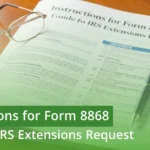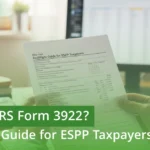
Navigating tax laws can feel overwhelming for both individuals and businesses. A common concern is whether tax evasion is considered a felony. Knowing the legal consequences and how to maintain tax compliance is crucial to avoid harsh IRS penalties. In this article, we’ll explain what tax evasion entails, whether it’s classified as a felony, and practical steps to ensure you follow tax regulations with confidence.
What Is Tax Evasion?
Tax evasion occurs when someone intentionally misreports or hides income, expenses, or assets to lower their tax liability. Examples include understating income, exaggerating deductions, concealing funds in offshore accounts, or neglecting to file tax returns. Unlike simple errors, tax evasion involves deliberate fraud, making it a serious violation of tax laws.
It’s important to distinguish tax evasion from tax avoidance. Tax avoidance uses legal strategies to reduce taxes, such as claiming legitimate deductions or credits. In contrast, tax evasion is a criminal act that can lead to a tax audit or prosecution.
Is Tax Evasion a Felony?
Yes, tax evasion is generally classified as a felony under federal tax laws. Per Section 7201 of the Internal Revenue Code, attempting to evade or defeat taxes is a felony offense. If convicted, you could face:
- Up to 7 years in prison
- Fines up to $250,000 for individuals or $500,000 for businesses
- Repayment of all owed taxes, interest, and IRS penalties
Other related offenses, such as filing false tax returns (Section 7206) or failing to file (Section 7203), may be classified as felonies or misdemeanors, depending on the circumstances. For instance, deliberately not filing a tax return is usually a misdemeanor but can escalate if combined with tax fraud.
Consequences of Tax Evasion
Beyond legal penalties, tax evasion can harm your personal and professional reputation, restrict job prospects, and cause financial distress. The IRS uses advanced tools like tax audits, whistleblower tips, and data analysis to detect tax fraud. Behaviors that may trigger an investigation include:
- Unreported income from cash-based businesses
- Excessive or questionable deductions
- Inconsistent tax preparation records
- Failure to disclose foreign accounts
If the IRS suspects tax evasion, it may initiate a criminal investigation, involving interviews, subpoenas, and detailed financial reviews. Consulting a tax consultant early can help address issues before they escalate.
How to Ensure Tax Compliance
Staying compliant with tax regulations is the best way to avoid tax evasion and its consequences. Here are key steps to protect yourself:
- Keep Accurate Records: Organize income, expenses, and receipts meticulously. Use accounting tools or hire a tax consultant for reliable tax preparation.
- File Taxes Promptly: Late filings can lead to IRS penalties and raise red flags. If you can’t pay, consider IRS payment plans or request an extension.
- Hire a Professional: A tax consultant or CPA can offer expert advice on tax planning, ensuring compliance and minimizing tax liability.
- Report Foreign Assets: Comply with the Foreign Account Tax Compliance Act (FATCA) by disclosing all foreign accounts to avoid severe penalties.
- Stay Updated: Tax laws evolve regularly. Work with a tax professional to keep up with changes and maintain compliance.
The Role of Tax Planning in Compliance
Tax planning is a lawful way to reduce your tax liability while adhering to tax regulations. Strategies like maximizing deductions, contributing to retirement plans, or claiming tax credits can save money without risking a felony. For businesses, tax planning involves correctly classifying workers, tracking expenses, and leveraging industry-specific tax benefits.
A tax consultant can tailor a tax planning strategy to your unique needs, ensuring you benefit from every legal opportunity while avoiding tax fraud.
What to Do If You Suspect Tax Evasion Issues
If you’ve made mistakes on prior tax returns or fear you’re at risk of tax evasion charges, act immediately. The IRS’s Voluntary Disclosure Program allows taxpayers to correct errors and settle debts without facing criminal charges. A tax professional can guide you through this process and help resolve issues during a tax audit.
Why Trust AcctRight PLLC for Tax Compliance?
At AcctRight PLLC, we’re dedicated to helping clients achieve tax compliance and avoid the dangers of tax evasion. Our skilled CPAs offer personalized tax preparation, strategic tax planning, and expert support during tax audits. Whether you’re managing complex tax issues or seeking peace of mind, we’re here to deliver results.
Conclusion
Tax evasion is a serious felony that carries heavy penalties, including jail time, substantial fines, and reputational damage. By prioritizing tax compliance, keeping accurate records, and working with a tax consultant, you can steer clear of tax fraud and safeguard your financial well-being. Take charge of your taxes today with AcctRight PLLC’s expert guidance.
Contact us at AcctRight PLLC to schedule a consultation and ensure your tax preparation is handled with precision and care




